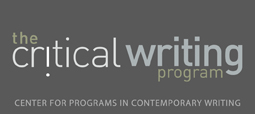Political Science
An Overview of the Discipline
As defined by the American Political Science Association, Political Science is "the study of governments, public policies and political processes, systems, and political behavior." Political scientists use either humanistic or scientific approaches to analyze the processes, systems, and outcomes of government-related matters in countries all over the world.
Professional Political Science writing uses three theories: systems theory, power theory, and goals theory. Systems theory offers explanations for political events as a system. Power theory shows political phenomenon in terms of individual or collective power relations. Lastly, goals theory looks at political processes as the interplay between means and ends.
Sub-disciplines of Political Science include:
- American Politics
- Comparative Politics
- International Relations
- Political Theory
- Political Philosophy
- Political Ideology
- Policy Studies and Analysis
- Political Economy
Writing in the Discipline
Goals
Political scientists work to understand political processes and concepts. Depending on the situation, the discipline can either aim to define and solve a problem or affirm or critique a position. For example, a political theorist may seek to identify and define a problem that others in the field have not explored. In other instances, political scientists may set out to correct a position or theory by explaining how and why it is incorrect.
Reasoning
The discipline mainly engages in justificatory reasoning — arguing for one or another position or theory — but also employs explanatory reasoning to, for example, discuss evidence, provide overviews of others' theories, or identify and explain a problem.
Evidence
Political Science uses a wide range of evidence to support its arguments. The appropriate type of evidence is highly dependent on the subfield. For example, political theory uses mainly text-based evidence drawn from works of history, philosophy, and political science. However, scholars of American politics are likely to employ a data-based approach, using empirical evidence and quantitative analysis. Be sure to check with your professor, as well as pay attention to the texts used in class, to see which kinds of evidence are acceptable in the field of your course.
Authorship
The discipline allows for single-authored as well as co-authored works with some variation based on the subfield and preferences of the political scientist. More specifically, papers in political theory are more likely to be single-authored works. But, as Nancy Hirschmann, Graduate Chair in the Penn Political Science Department, notes, "It’s a collaborative enterprise in the sense that we get a lot out of sharing our work with other people, other theorists, and getting feedback on our work." Co-authored works tend to be more common when quantitative methods of research are used.
Writing Tips
Important Criteria for Student Writing
Reasoning and evidence, demonstrating mastery of relevant concepts, and thoughtful organization are the most important considerations in evaluating undergraduate writing in Political Science.
According to Dr. Hirschmann, students seldom know enough about the literature to develop a truly original argument. However, she notes that this is acceptable, "because what is most important is for undergraduates to demonstrate mastery of concepts and basic knowledge of political science in their writing. While originality is valued, it should not eclipse learning the basic theories and skills of the discipline."
Along with demonstrating mastery of others' concepts Dr. Meredith especially looks for "the ability to make concise arguments." He encourages students to use outlining as the best tool for constructing and organizing a strong argument.
Common Errors
Failure to provide or develop adequate reasons and evidence are a common problem in undergraduate work in Political Science. Many students try to argue by example, rather than provide clear reasons and evidence that support their proposition. They assume that the reader will inherently see the connections they have uncovered.
Another common mistake is the failure to state an arguable proposition. Argument is the primary approach to knowledge-building in Political Science. Without a clearly stated justificatory proposition, the argument will be weak.
Genre
Student Assignments
Two typical Political Science assignments are: 1) An analysis that requires students to examine relationships between parts of a political event or document. 2) An argument that asks the student to take a position on a well-known debate. Students may find themselves using a substantial amount of synthesis in their papers, including definition, cause and effect, classification, and comparison and contrast. Note that professors are typically looking for mastery over originality from undergraduates.
Professional Writing
Professional writing in the discipline primarily involves writing journal articles for professional and trade press journals. Books are also common and may be either single-author monographs or collections of essays written by a range of authors. Co-authoring is not common in this discipline. Other genres include op-ed articles, law reviews, and magazine essays.
Additional Resources
Penn Political Science Department© 2013-2014 The University of Pennsylvania
Meet the Professors

Dr. Marc Meredith
Focusing on elections and voter behavior, Dr. Marc Meredith works to establish causality through his research. In his research, he uses mostly quantitative evidence. More...

Dr. Nancy Hirschmann
As a political theorist, Dr. Nancy Hirschmann describes her writing process as "draft after draft after draft ... the key to good political theory is multiple drafts." More...

Dr. Anne Norton
Dr. Anne Norton's areas of interest include identity and history, tradition and revolution, race and gender, as well as colonialism and post-colonialism. More...

Dr. John DiIulio
Dr. John DiIulio writes for many different audiences. His interests include American politics, health care policy, crime policy, and religious nonprofits. More...
